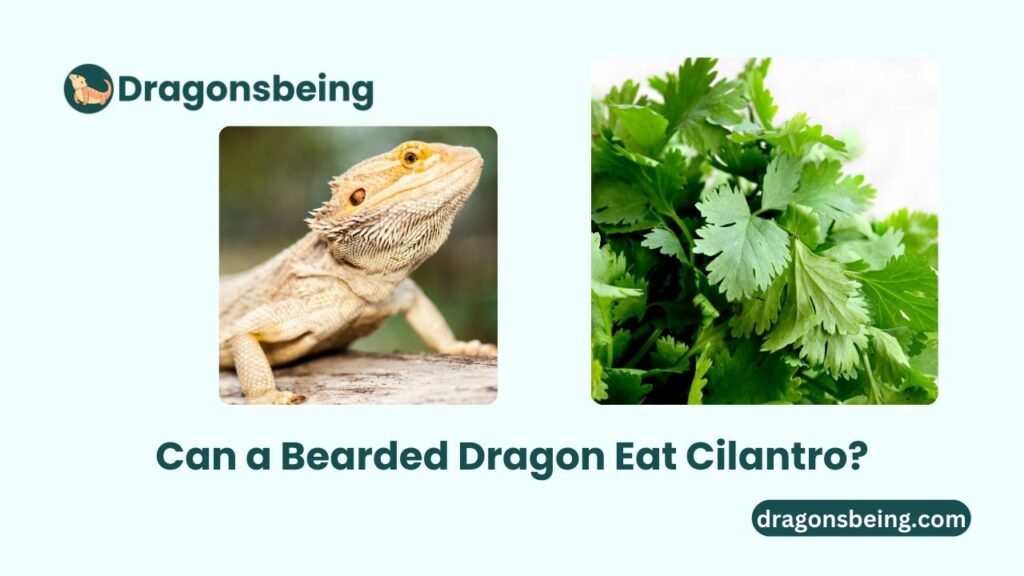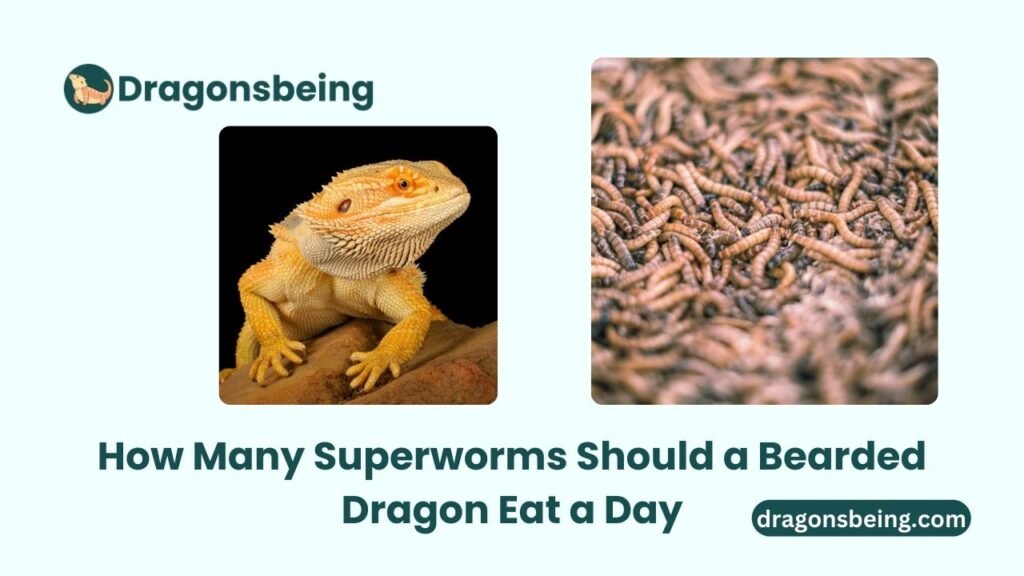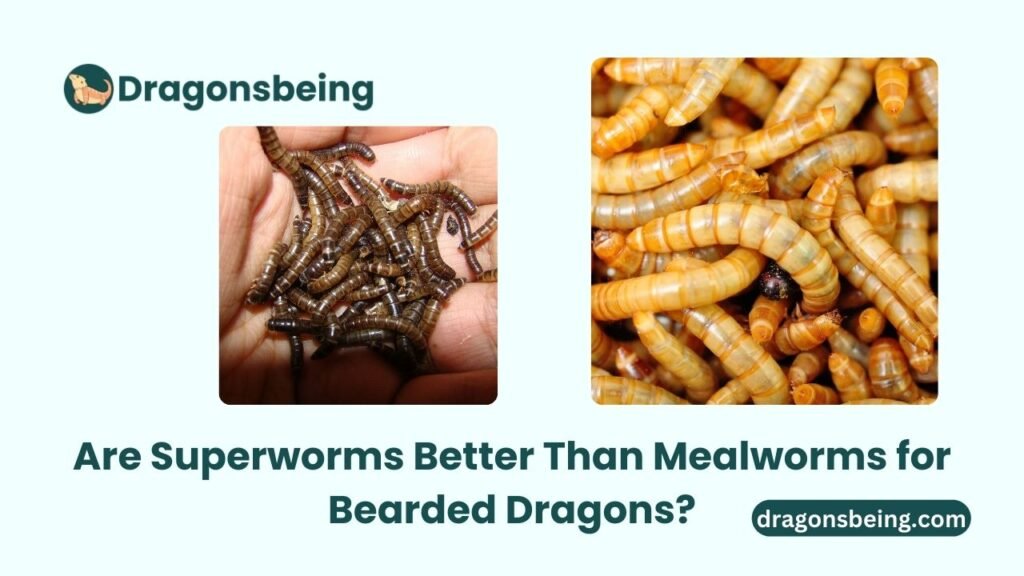Bearded dragons (Pogona vitticeps) are one of the most popular pet reptiles, loved for their friendly temperament and relatively simple care requirements.
However, like all pets, they require a balanced diet to maintain their health and well-being.
If you’re a bearded dragon owner, you might have wondered whether certain herbs, such as cilantro (also known as coriander), are safe to include in their diet.
In this article, we will explore whether bearded dragons can eat cilantro, the benefits and risks associated with it, and the best ways to introduce this herb into their meals.
Understanding the Nutritional Needs of Bearded Dragons
Before diving into the specifics of cilantro, it’s important to understand the nutritional requirements of bearded dragons.
These reptiles are omnivores, meaning they eat a combination of plant-based foods (vegetables, fruits, and herbs) and animal-based foods (insects).
The key to maintaining their health lies in offering a well-rounded diet that meets their unique nutritional needs.
Bearded dragons require:
- Leafy greens and vegetables: These provide essential vitamins, minerals, and fiber.
- Insects and protein: Protein from live insects, such as crickets and mealworms, supports growth and muscle development.
- Calcium: Crucial for bone health, calcium must be included in their diet regularly, often through supplements.
- Water: Hydration is key to digestion and overall health.
Can Bearded Dragons Eat Cilantro? The Basics
The short answer is yes, bearded dragons can eat cilantro—but only in moderation. Cilantro, also called coriander, is a popular herb often used in cooking and garnishing various dishes.
While cilantro can be beneficial when offered as an occasional treat, it is not a staple food in a bearded dragon’s diet.
In this section, we’ll cover:
- The nutritional profile of cilantro.
- How cilantro can fit into a bearded dragon’s diet.
- When and how to offer cilantro safely.
Nutritional Profile of Cilantro
Cilantro is rich in several nutrients that can offer health benefits for your bearded dragon. However, as with any food, it must be offered in moderation to avoid potential risks.
Vitamins and Minerals in Cilantro
Cilantro contains a variety of essential vitamins and minerals that support overall health, including:
- Vitamin A (674 IU per 100g): Supports vision, skin health, and immune function.
- Vitamin C (27 mg per 100g): Acts as an antioxidant and supports immune health.
- Vitamin K (310 mcg per 100g): Important for blood clotting.
- Calcium (67 mg per 100g): Essential for strong bones and proper muscle function.
- Iron (1.77 mg per 100g): Necessary for oxygen transport in the body.
These nutrients may offer various health benefits for your bearded dragon, including improving digestion, enhancing the immune system, and promoting overall wellness.
Fiber Content
Cilantro is also a good source of dietary fiber, which is beneficial for promoting healthy digestion in reptiles. Fiber can help prevent constipation and maintain a healthy gut.
Benefits of Cilantro for Bearded Dragons
Now that we know cilantro contains several important nutrients, let’s explore the potential benefits of including it in your bearded dragon’s diet.
1. Digestive Health
Cilantro is rich in fiber, which can aid in your dragon’s digestion. A healthy digestive system is essential for absorbing nutrients properly and preventing issues like constipation. Cilantro can help stimulate appetite, which is important if your bearded dragon is a bit picky when it comes to eating.
2. Immune System Support
Vitamins A and C found in cilantro can boost your dragon’s immune system. These antioxidants help fight free radicals and reduce inflammation, keeping your pet healthier and less prone to illnesses.
3. Variety and Mental Stimulation
Introducing cilantro occasionally can add variety to your bearded dragon’s diet. This change in food can stimulate their appetite and offer a refreshing experience for your pet.
Offering different types of foods can also prevent boredom and ensure they receive a broad spectrum of nutrients.
Risks of Feeding Cilantro to Bearded Dragons
While cilantro has its benefits, it is essential to consider the potential risks associated with feeding this herb to your bearded dragon. Too much of anything can be harmful, and cilantro is no exception.
1. High Oxalate Content
Cilantro contains oxalates, which can bind to calcium and prevent its absorption in the body. In excessive amounts, oxalates can contribute to kidney problems and lower calcium levels, leading to metabolic bone disease in bearded dragons. To mitigate this risk, it is important to feed cilantro sparingly and balance it with calcium-rich foods.
2. Potential Digestive Upset
While cilantro can aid digestion, feeding too much can cause digestive issues, such as diarrhea or an upset stomach. Always monitor your dragon’s response after feeding cilantro and adjust their diet accordingly.
3. Allergic Reactions
In rare cases, some bearded dragons may be allergic to cilantro. Signs of an allergic reaction can include swelling of the face, skin irritation, or difficulty breathing. If you notice any of these symptoms after introducing cilantro, stop feeding it immediately and consult a veterinarian.
How to Safely Incorporate Cilantro Into a Bearded Dragon’s Diet
Cilantro can be a healthy addition to your bearded dragon’s diet if introduced in moderation and with proper preparation.
Here’s a step-by-step guide to safely incorporating cilantro:
1. Wash Thoroughly
Always wash cilantro thoroughly to remove any pesticides, dirt, or harmful chemicals. Pesticide residues can harm your bearded dragon and should be avoided at all costs.
2. Serve Fresh, Not Dried
Fresh cilantro retains its nutritional value and is preferable to dried cilantro, which loses most of its nutrients during the drying process.
Dried herbs often have lower nutrient content and may lack the antioxidants that fresh herbs provide.
3. Chop Into Small Pieces
To make it easier for your dragon to eat, chop the cilantro into small pieces. This helps prevent choking and ensures that the herb is easy to consume.
4. Mix with Leafy Greens
One of the best ways to serve cilantro is to mix it with other leafy greens such as collard greens, kale, or mustard greens.
This ensures a balanced intake of nutrients and helps your dragon enjoy a varied and well-rounded diet.
5. Offer in Moderation
Introduce cilantro gradually and monitor how your dragon reacts. Start with a small amount—about a teaspoon for juveniles and up to two teaspoons for adults.
Offering cilantro once a week is recommended to prevent overfeeding.
Alternatives to Cilantro: Other Safe Herbs and Greens
While cilantro can be a healthy treat for your bearded dragon, many other herbs and greens are safe to include in their diet.
Offering a variety of foods will ensure your dragon gets a wide range of nutrients.
Here are some safe herb alternatives to cilantro:
- Basil: A fragrant herb rich in vitamins and minerals.
- Parsley: High in vitamins A and C, perfect for occasional feeding.
- Dill: Safe and nutritious, offers a unique flavor.
- Thyme: Supports digestion and immune function.
- Oregano: Known for its immune-boosting properties.
Incorporating these herbs into your dragon’s diet can provide additional health benefits while keeping their meals interesting.
Expert Advice: Veterinary Insights on Feeding Cilantro
When it comes to feeding cilantro and other herbs to bearded dragons, it’s always wise to consult a veterinarian.
Experts recommend offering cilantro in moderation and ensuring it is properly prepared to avoid any health issues.
Key Veterinary Recommendations
- Offer in moderation: A small amount is sufficient. Don’t overfeed cilantro, especially if your dragon has calcium or digestive issues.
- Monitor your dragon: Watch for any adverse reactions, such as lethargy, digestive upset, or allergic symptoms.
- Provide variety: Ensure that cilantro is just one part of a balanced diet that includes other vegetables, leafy greens, fruits, and insects.
Final Thoughts: Should You Feed Cilantro to Your Bearded Dragon?
In conclusion, cilantro can be a beneficial addition to your bearded dragon’s diet when offered in moderation and properly prepared.
It provides essential vitamins and minerals, promotes digestive health, and adds variety to your dragon’s meals.
However, it is important to be mindful of the risks, such as the presence of oxalates, and to ensure that cilantro is not a substitute for a balanced diet rich in leafy greens, vegetables, and protein.
Always observe your dragon’s behavior and health after feeding cilantro, and consult with a veterinarian if you have any concerns.
With the right approach, cilantro can be a healthy, occasional treat that enhances your bearded dragon’s diet and overall well-being.
Frequently Asked Questions
Can Bearded Dragons Eat Cilantro Safely?
Yes, bearded dragons can eat cilantro in moderation. It’s not toxic and can add variety to their diet.
What Are The Benefits Of Cilantro For Bearded Dragons?
Cilantro provides vitamins and minerals, aiding digestion and enhancing taste in their meals.
How Often Can Bearded Dragons Eat Cilantro?
Limit cilantro to occasional treats, about once a week, to prevent digestive issues.
Is Cilantro Safe For Baby Bearded Dragons?
Yes, baby bearded dragons can eat cilantro, but ensure it’s finely chopped and given in small amounts.
Should Cilantro Be Fresh Or Dried For Bearded Dragons?
Fresh cilantro is preferred as it retains more nutrients than dried options.
Can Cilantro Cause Any Health Issues For Bearded Dragons?
Excessive cilantro may lead to digestive upset. Always introduce new foods gradually.
Conclusion
Bearded dragons can safely eat cilantro in moderation. This herb offers nutritional benefits and adds variety to their diet. Always wash cilantro thoroughly before feeding it to your pet. Monitor your bearded dragon’s reaction to new foods. A balanced diet is key to their health and well-being.
Keep your dragon happy and healthy!

Hi, I’m Dr. Michelle Mayers, a veterinary professional with a deep passion for animal health and well-being. Over the years, I’ve dedicated my life to caring for animals and helping pet owners better understand their furry, feathered, or scaly companions. On my blog, Dragonsbeing, I share insights, tips, and stories that aim to educate, inspire, and connect with fellow animal lovers. Join me at Dragonsbeing as we explore the fascinating world of veterinary care and celebrate the special bond between humans and animals!


